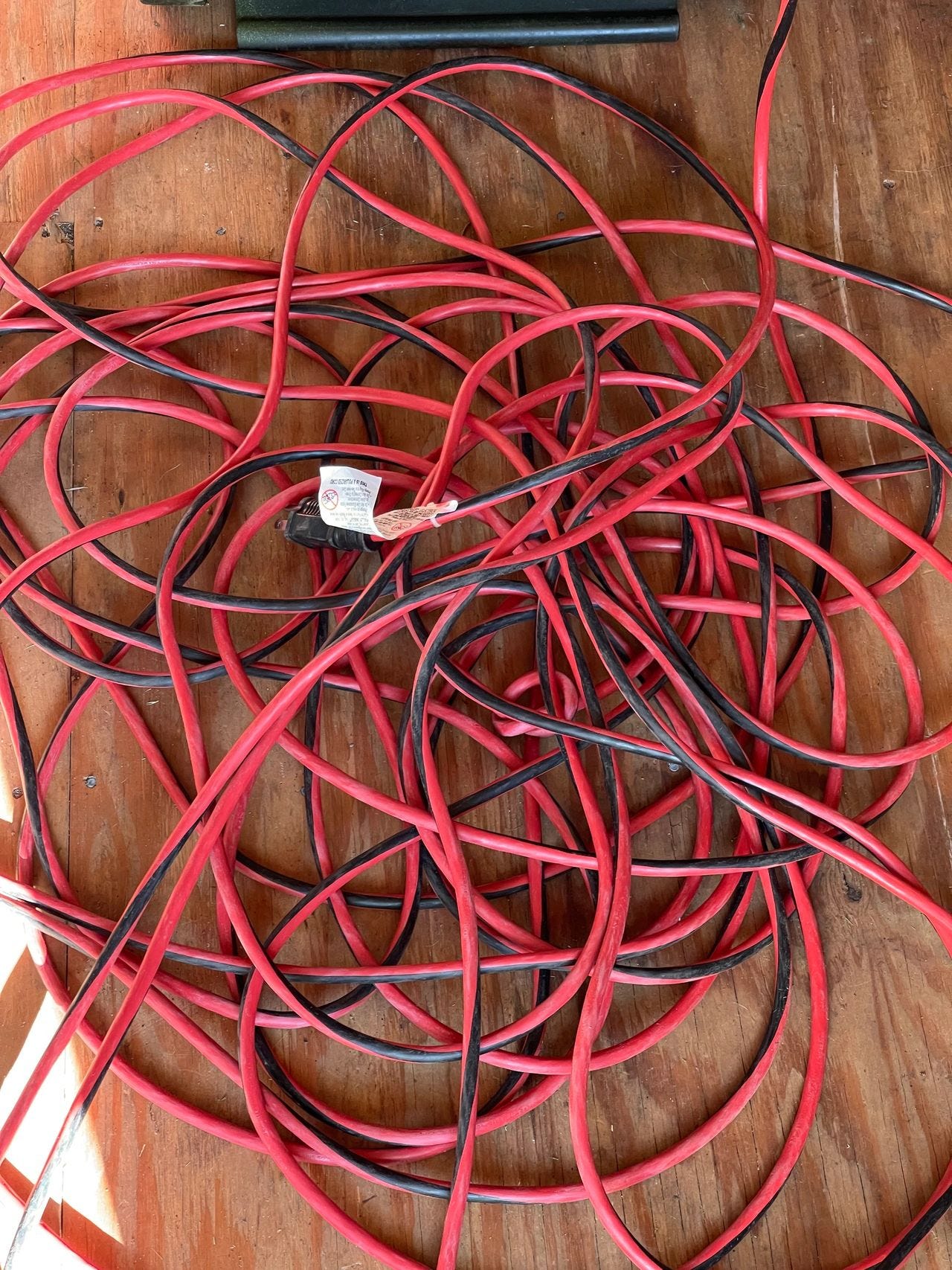
Dear reader: I’m away this weekend, performing and preaching, so here is one from the archives for today.
We magicians learn a lot from our mistakes. (I still cringe at the memory of flubbing the vanish of a dollar bill in front of 250 people on Zoom.) We have to live with the fact that we're going to mess up during a performance from time to time -- just as an actor can forget her lines or a musician can play the wrong note. Such are the performing arts. The point is to learn something from the time we couldn't name your card or the rabbit was nowhere to be found. We write in our notebooks, review and reflect, adjust and refine, and head back out in the world to try for better the next time.
A flubbed line or blown note won't ruin a theatrical or musical performance, but good magic depends on perfection; great magic demands it. I once read that for a plane to go down, seven things have to go wrong simultaneously, and the chances of that happening are exceedingly rare. For a magic performance to go well -- to soar -- seven things have to go right simultaneously, and it can take years of performing (we often refer to this as "flight hours," thus the airplane analogy) to pull that off time after time.
Trial and error, though, that is something different. But it is also just as necessary to advance one's learning.
As opposed to making a mistake when you hadn't intended to, trial and error is the willingness to fail, even fail repeatedly, in order to finally not fail -- to arrive at a solution. Nowhere is this method practiced so assiduously as in the pharmaceutical industry, where it can take 10 years and $1 billion to bring a drug to market. Drug researchers will tell you their goal is to fail fast -- that's the expression they use -- to rule out medicinal dead ends quickly and avoid going down expensive rabbit holes. Their method? A ton of trial and error, thousands upon thousands of experiments -- trials -- to rule out lost causes and find the next blockbuster drug or at least a unique mechanism of action.
So failure seems pretty important. We learn from our mistakes. We progress as we err. Error is the linchpin, the fulcrum to greater balance between what is and what could be.
As important as error seems to be, however, I have a hunch it is in fact trial that is the braver act. More creative, too, as a certain length of cord taught me not long ago.
Janice and I feel strongly about using clean energy, so all of our outdoor appliances are electric. Our lawn mower does a surprisingly decent job considering it weighs less than a case of beer and doesn't sound like a Gatling gun when it starts up. It does have one drawback, however: it is corded, and grappling with a 100-foot cord that seems to have a mind of its own as I mow is a real pain. I look like Savion Glover, tap-dancing on our lawn to step over and around a very lengthy garter snake that wants to break my neck.
What is even worse is how instantly it can get tangled. It seemed that every time I went to our shed to pull out the mower, no matter how carefully I had wound the cord around my arm into a nice, tidy spool after the last mowing, the cord had, all on its own, become hopelessly knotted and twisted. Just the time it took to unknot and untangle the jumble was enough to discourage me from mowing at all.
Recently, however, I tried something unusual. When I put our mower away in the shed one Saturday, I simply snaked the entire cord through my hands, pulling it along, watching it snake though the grass and then through my hands, and threw it on the floor in what seemed like a hopeless mess.
Now, I'm a neat freak and a fairly organized guy. To have a lengthy cord lying all over the floor is almost physically painful to me. But since I started gathering the cord this way, whether pulling it out of the shed to get ready to mow or putting it away, I've had a perfectly compliant cord -- unknotted, untwisted, dutifully following me around the yard -- and it vexes me no more. It even stays out of my way.
What prompted me to stop winding it around my arm and just start yanking, snaking and throwing it on the floor or the ground? Nothing other than that the old way wasn't working. I tried something new. It just popped into my head and ran counter to common sense. I tried it, anyway. Or, rather, I tried it precisely because it ran counter to reason. Because reason wasn't working.
And that is why, while it's true that failure may be important, it's also true that you can't have those important failures if at first you don't try. I think Yoda had it wrong: There is try. Trying is doing. Trying is doing but in a highly creative way.
So don't be afraid to try. If you're not afraid to try, you won't be afraid to fail, because the price of failure is simply having to try, try again. Plus, just as I grew weary of wrestling with the Medusa of power cords, you'll get tired of failing. That's when your trying becomes more creative. And when you get really tired of failing, well. That's when you become the artist you've always wanted to be.




